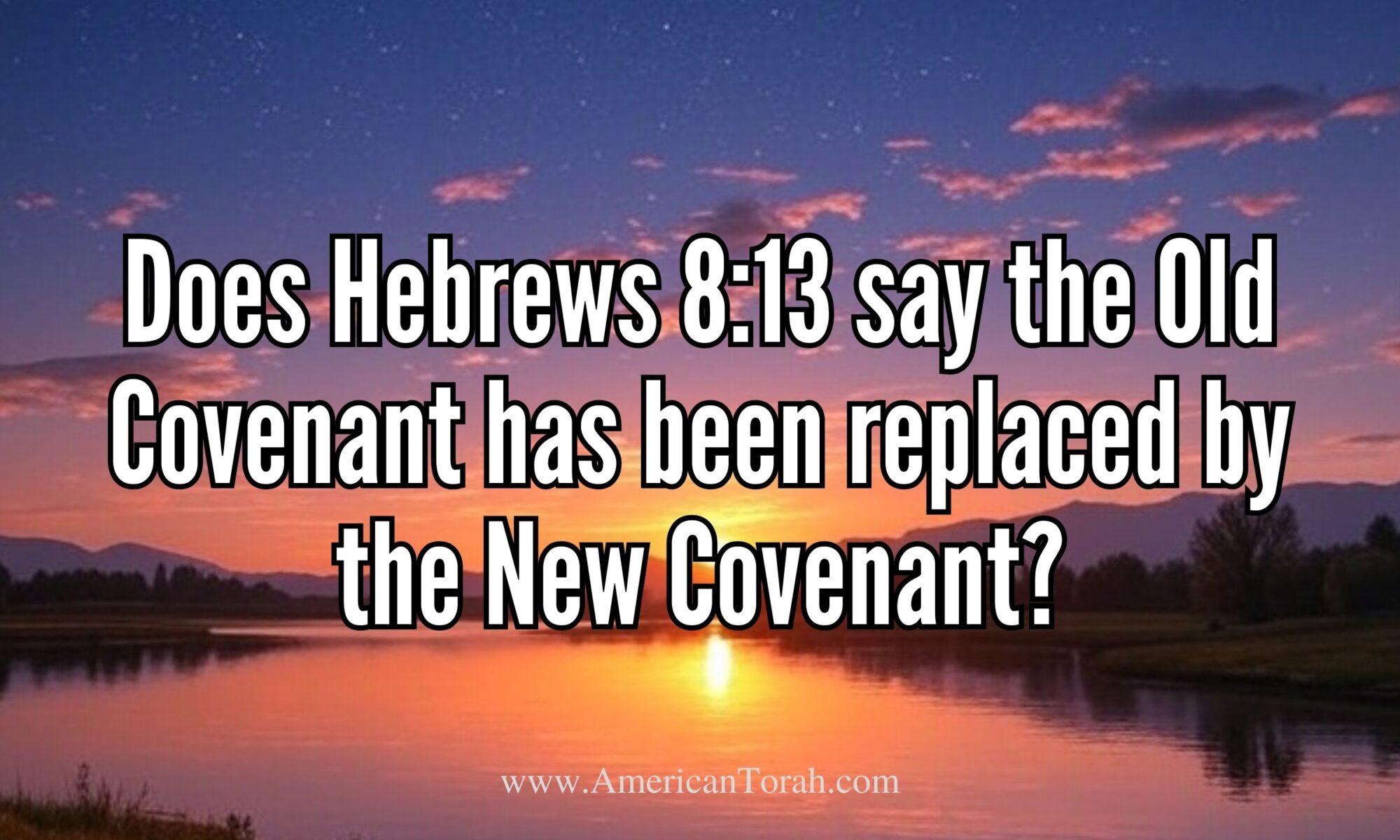In speaking of a new covenant, he makes the first one obsolete. And what is becoming obsolete and growing old is ready to vanish away.
Hebrews 8:13 ESV
When we read the word “obsolete” we think of old hardware or software that has been replaced by a newer version with bug fixes and new features. However, the Greek word παλαιόω in Hebrews 8:13 doesn’t exactly mean that. It’s not terribly far off, so I can see why the theological biases of the ESV and NASB translators led them to use it, but I think these translations are misleading due to semantic drift in the English language.
The verb παλαιόω does mean to become old, sometimes with the implication of being worn or faded with age, or even antiquated in the sense of quaint customs that have fallen out of use. It was apparently a rarely used word in the first century; the adjectival form, παλαιός, was more common.
Extra-Biblical Jewish writers, like Philo and Josephus, used these words to refer to the Torah and other ancient Hebrew writings without implying that they had been replaced. They only meant that they were very old, sometimes being specially venerated and sometimes being thought irrelevant.
I don’t think “obsolete” is an unreasonable translation of the word in some contexts, but I don’t think the writer of Hebrews meant that the Sinai Covenant was being replaced by the New Covenant like a software update. In context, I believe he meant that the New Covenant makes the Old look faded and worn by comparison.
Paul points out in Galatians that a new covenant can’t cancel out a prior one, and in Romans he points out that God never revokes a promise–in the context of God keeping his covenant with Israel–once given. Nowhere else in the Bible is there any hint that one covenant can replace another one. To the contrary, the consistent example is that each covenant is layered on top of all those that came before. They are “stacked, not swapped”. It’s very bad exegesis to re-interpret all of Scripture based on one possible understanding of one verse.
Here is a more literal translation of this verse, making fewer theological assumptions:
In saying “new”, it makes the prior to be “old”. And what becomes old and is aging is near vanishing.
Hebrews 8:13
The New Covenant was in full force from the moment Yeshua died, yet decades later, the writer of Hebrews clearly says that the Old has not yet vanished. It is “becoming old”, not “it has already been replaced”. So, it is directly contrary to Scripture to say that the establishment of the New Covenant necessarily abrogated the Old. The writer is merely pointing out how much greater the New Covenant is than the Old.
The New Covenant doesn’t cancel or replace the Old. It outshines it like a bright lamp outshines a candle without extinguishing it or like the sun makes the moon and stars to vanish without making them fall from the sky.
Check out this related talk I gave at Restoration Messianic Fellowship in Boulder Colorado in August of 2025:
Everything that Yeshua (aka Jesus) & the Apostles taught
Come with me as I draw out the connections that are so often missed |


